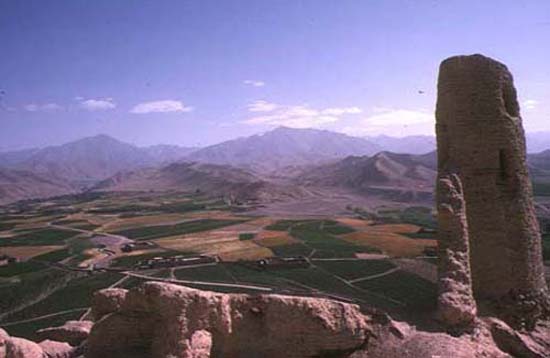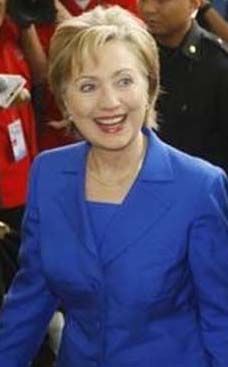
Before more resources are allocated to this region, the U.S. needs to be realistic about what the objective is and exactly how complicated the forces aligned against us are. Initially the mission was to get Osama bin Laden, dead or alive. When that was not successful, it morphed into the exportation of democracy to a feudal and barren land, known more for Bactrian camels and lapis lazuli than much else. Then protecting the fledgling government of Hamid Karzai became the dominant strain, and finally, the need to prevent further Balkanization or disintegration in South Asia—all the while eradicating a principal cash crop of the rural people, the poppy, often worth more per acre than wheat. Right now the U.S. is trapped in a lattice work of misguided or overwrought objectives, fighting a war by matrix in which the burdens of NATO coalition members are terribly unequal.
India RPCV Frank Schell writes: How to Win the 'Af-Pak' War
How to Win the 'Af-Pak' War
by Frank Schell
Posted February 27. 2009
The bones of Alexander’s men lie deep in Afghanistan. The Mughals, a Turkic dynasty established in India in the early 16th century that later adopted the Persian language, could not with their affinity subdue the Turkic and Persian tribes in the region. The bleak, mountainous land was unkind to the British Raj during a series of Anglo-Afghan wars that started in 1839 and ended 80 years later. The Soviet invasion of 1979 was seen as a nine year immersion into Afghan hell for its army. And now, under the Obama administration, the U.S. is preparing to commit more troops, with little to show for some 3,300 casualties and the expenditure of more than $173 billion since 9/11.
Before more resources are allocated to this region, the U.S. needs to be realistic about what the objective is and exactly how complicated the forces aligned against us are. Initially the mission was to get Osama bin Laden, dead or alive. When that was not successful, it morphed into the exportation of democracy to a feudal and barren land, known more for Bactrian camels and lapis lazuli than much else. Then protecting the fledgling government of Hamid Karzai became the dominant strain, and finally, the need to prevent further Balkanization or disintegration in South Asia—all the while eradicating a principal cash crop of the rural people, the poppy, often worth more per acre than wheat. Right now the U.S. is trapped in a lattice work of misguided or overwrought objectives, fighting a war by matrix in which the burdens of NATO coalition members are terribly unequal.
Afghanistan and Pakistan share a 1,600 mile “border" that is not truly a border, declared the Durand Line in 1893. Neither country has control of this artificial frontier, and it was never acknowledged by the 42 million Pashtun peoples that live on both sides of it. While many Pashtun are significantly pro-Taliban, they have also wanted their own country for many years. Some of the areas where they reside such as the Federally Administered Tribal Areas (including the Taliban-controlled Swat Valley), and Northwest Frontier Province of Pakistan are beyond the control of any sovereign government already. The Taliban and al Qaeda are not the only enemy: Pashtun ethnic nationalism is lined up against the coalition too. Afghanistan and Pakistan are effectively one country in the war against Islamic jihad.
The objective must be redefined as preventing nuclear arms from falling into the hands of the Taliban, al Qaeda or their surrogates in the region. This will resonate with the American people and our allies far more than most of the previous rationales. The U.S. must respect the history of a region that has been the demise of empires and recognize the futility of beginning the democratic process where there is no middle class to start with.
India, a secular democracy with 150 million Muslims that are generally Indians first, ethnic and religious affinities following, should be brought to the table. The dangers of Hindu-Muslim communal conflict have been the case in India, long before Islamic jihad became a global brand, and India is vulnerable from within. With historical and cultural ties to Persia among the Islamic influences entering the subcontinent, India has massive economic and military presence that it can bring to bear, pressuring Pakistan to align itself with India and the West, or with the forces of darkness that, in the recent words of its defense minister, A.K. Anthony, are a threat to humanity and civilization.
Pakistan must be told to shut down the radical clerics and madrassas and stand and fight for its life—and stop feeding the crocodile, in Winston Churchill’s famous analogy. The U.S. can help build Pakistan’s counterinsurgency capability, since its army has been configured mainly to take on India over the past sixty years and is not believed sufficiently trained for the CI task at hand. Finally, Saudi Arabia should be engaged as a benefactor and reconstructionist party, given its financial support of the mujahideen against the Soviets and its potential moral authority.
The U.S. cannot rely on a regional solution that embraces China and Russia. China’s priorities include helping the stability of U.S. Treasury markets, limiting the damage to its export driven economic model, and building its infrastructure and blue water navy. And Russia, still angry about its fall from empire, would rather invade Georgia, menace the Ukraine and cut off its natural gas to Europe, get the U.S. kicked out of Kyrghystan, and conduct naval exercises with Hugo Chavez.
The U.S. does not have to be on its own in “Af-Pak,” as it is now being called. But first, the new administration does have to define the right objective there.
Frank Schell recently returned from a fact-finding mission to India with the Harris School of Public Policy Studies at the University of Chicago, where he is a member of the Dean’s International Council. A former banking executive, he served in the U.S. Peace Corps in India, speaks Hindi-Urdu, and is on the editorial board of the Chicago-based National Strategy Forum, which focuses on national security issues.












